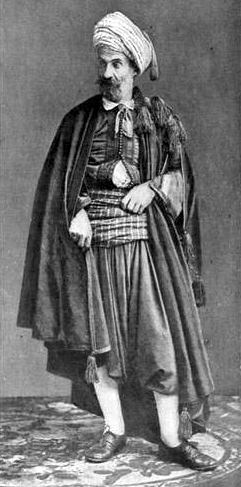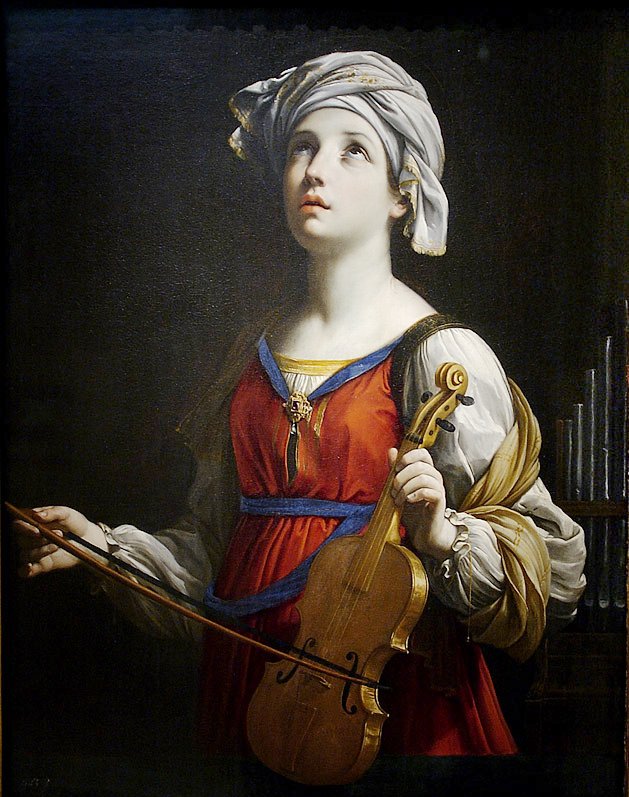|
Sultana Daoud
Sultana Daoud (also known as Reinette l'Oranaise; 1918 in Tiaret, Algeria – 17 November 1998, in Paris) was an Algerian Jewish singer, who helped preserve Arab-Andalus music, as well as introducing the genre to European audiences. Early life She was born in Tiaret, the daughter of a Moroccan Rabbi. Being blind as a result of smallpox when two years old, she studied at a school for the blind in Algiers, until her mother encouraged her to take up music. She studied with Saoud l'Oranais, who gave her the nickname ''Reinette l'Oranaise'' ("Queenie from Oran"). From him she learned to play several instruments, and learned a great many traditional songs in the Arab-Andalus and Raï styles. They moved to Paris in 1938, but at his suggestion she soon returned to Algeria. There she joined the orchestra of Meriem Fekkaï, until Algerian independence ended her career - she had been opposed to independence. Unable to find work in her home country, she returned to France, playing in restaurant ... [...More Info...] [...Related Items...] OR: [Wikipedia] [Google] [Baidu] |
Tiaret
Tiaret () or Tahert () is a major city in northwestern Algeria that gives its name to the wider farming region of Tiaret Province. Both the town and region lie south-west of the capital of Algiers in the western region of the Hautes Plaines, in the Tell Atlas, and about from the Mediterranean coast. It is served by Abdelhafid Boussouf Bou Chekif Airport. Etymology The name means "Lioness" in the Berber language, a reference to the Barbary lions that lived in this region. Maghrebian place names like Oran (''Wahran'') which means "lion", and Souk Ahras which means "Market of Lions" have the same etymological source. Population The town had a population of 178,915 in 2008. The town covered around 20.086.62 km2. Infrastructure and industry A 1992 study by the University of Nice Sophia Antipolis reported significant areas contaminated by industrial pollution, and growing squatter settlements on the periphery. The region is predominantly one of agriculture. There is a ... [...More Info...] [...Related Items...] OR: [Wikipedia] [Google] [Baidu] |
Chaabi
Chaabi ( in Arabic), also known as Chaâbi, Sha-bii, or Sha'bii meaning "folk", refers to different music genres in North Africa such as Algerian chaabi, Moroccan chaabi and Egyptian Shaabi. Chaabi music is frequently found in weddings and this style is often associated with the festivals. The use of popular language and the creation of new rhythms have made this style an essential complement to the dance. Popular artists * Hakim * Hassan El Asmar * Bahaa Sultan * Hicham.Bajit * Jedwan * Yassin Bounous * Daoudi Abdellah * Saïd Senhaji * El Hadj M'Hamed El Anka El Hadj M'Hamed El Anka (), (May 20, 1907 in Algiers – November 23, 1978 in Algiers) also known as Hadj Muhammed Al Anka, El-Hadj M'Hamed El Anka (and various other combinations), was considered a Grand Master of Andalusian classical music and ... * El Hachemi Guerouabi * Amar Ezzahi * Dahmane El Harrachi * Kamel Messaoudi * Hamada Helal * Bab L' Bluz References External links Hicham.Bajit MaghrebS ... [...More Info...] [...Related Items...] OR: [Wikipedia] [Google] [Baidu] |
Emigrants From French Algeria To France
Emigration is the act of leaving a resident country or place of residence with the intent to settle elsewhere (to permanently leave a country). Conversely, immigration describes the movement of people into one country from another (to permanently move to a country). A migrant ''emigrates'' from their old country, and ''immigrates'' to their new country. Thus, both emigration and immigration describe migration, but from different countries' perspectives. Demographers examine push and pull factors for people to be pushed out of one place and attracted to another. There can be a desire to escape negative circumstances such as shortages of land or jobs, or unfair treatment. People can be pulled to the opportunities available elsewhere. Fleeing from oppressive conditions, being a refugee and seeking asylum to get refugee status in a foreign country, may lead to permanent emigration. Forced displacement refers to groups that are forced to abandon their native country, such as by en ... [...More Info...] [...Related Items...] OR: [Wikipedia] [Google] [Baidu] |
Algerian Jews
The history of Jews in Algeria goes back to Antiquity, although it is not possible to trace with any certainty the time and circumstances of the arrival of the first Jews in what is now Algeria. In any case, several waves of immigration helped to increase the population. There may have been Jews in Carthage and present-day Algeria before the Roman conquest, but the development of Jewish communities is linked to the Roman presence. Jewish revolts in Israel and Cyrenaica in the 1st and 2nd centuries certainly led to the arrival of Jewish immigrants from these regions. The vast majority of scholarly sources reject the notion that there were any large-scale conversions of Berbers to Judaism. The Muslim conquest of North Africa, which was completed in Algeria in the 8th century, brought North Africa into the realm of Islamic civilization and had a lasting impact on the identity of local Jewish communities, whose status was henceforth governed by the dhimma. New immigrants later ... [...More Info...] [...Related Items...] OR: [Wikipedia] [Google] [Baidu] |
People From Tiaret
The term "the people" refers to the public or common mass of people of a polity. As such it is a concept of human rights law, international law as well as constitutional law, particularly used for claims of popular sovereignty. In contrast, a people is any plurality of persons considered as a whole. Used in politics and law, the term "a people" refers to the collective or community of an ethnic group or nation. Concepts Legal Chapter One, Article One of the Charter of the United Nations states that "peoples" have the right to self-determination. Though the mere status as peoples and the right to self-determination, as for example in the case of Indigenous peoples (''peoples'', as in all groups of indigenous people, not merely all indigenous persons as in ''indigenous people''), does not automatically provide for independent sovereignty and therefore secession. Indeed, judge Ivor Jennings identified the inherent problems in the right of "peoples" to self-determination, as i ... [...More Info...] [...Related Items...] OR: [Wikipedia] [Google] [Baidu] |
Jewish Singers
Jews (, , ), or the Jewish people, are an ethnoreligious group and nation, originating from the Israelites of History of ancient Israel and Judah, ancient Israel and Judah. They also traditionally adhere to Judaism. Jewish ethnicity, religion, and community are highly interrelated, as Judaism is their ethnic religion, though it is not practiced by all ethnic Jews. Despite this, religious Jews regard Gerim, converts to Judaism as members of the Jewish nation, pursuant to the Conversion to Judaism, long-standing conversion process. The Israelites emerged from the pre-existing Canaanite peoples to establish Kingdom of Israel (Samaria), Israel and Kingdom of Judah, Judah in the Southern Levant during the Iron Age.John Day (Old Testament scholar), John Day (2005), ''In Search of Pre-Exilic Israel'', Bloomsbury Publishing, pp. 47.5 [48] 'In this sense, the emergence of ancient Israel is viewed not as the cause of the demise of Canaanite culture but as its upshot'. Originally, J ... [...More Info...] [...Related Items...] OR: [Wikipedia] [Google] [Baidu] |
Blind Musicians
Blind musicians are singers or instrumentalists, or in some cases singer-accompanists, who are legally blindness, blind. Resources Historically, many blind musicians, including some of the most famous, have performed without the benefit of formal instruction, since such instruction relies extensively on written musical notation. However, today there are many resources available for blind musicians who wish to learn Western music theory and Musical notation, classical notation. Louis Braille, the man who created the braille alphabet for the blind, also created a system of classical notation for the blind called Braille music. This system allows the blind to read and write music much as the sighted do. The largest collection of Braille musical scores is located at the Library of Congress in Washington, D.C. Outside the U.S., the largest collection of braille music scores is stored at the National Library for the Blind in England. Computer technology and the Internet make it pos ... [...More Info...] [...Related Items...] OR: [Wikipedia] [Google] [Baidu] |
1998 Deaths
This is a list of lists of deaths of notable people, organized by year. New deaths articles are added to their respective month (e.g., Deaths in ) and then linked below. 2025 2024 2023 2022 2021 2020 2019 2018 2017 2016 2015 2014 2013 2012 2011 2010 2009 2008 2007 2006 2005 2004 2003 2002 2001 2000 1999 1998 1997 1996 1995 1994 1993 1992 1991 1990 1989 1988 1987 1986 Earlier years ''Deaths in years earlier than this can usually be found in the main articles of the years.'' See also * Lists of deaths by day * Deaths by year (category) {{DEFAULTSORT:deaths by year ... [...More Info...] [...Related Items...] OR: [Wikipedia] [Google] [Baidu] |
1918 Births
The ceasefire that effectively ended the First World War took place on the eleventh hour of the eleventh day of the eleventh month of this year. Also in this year, the Spanish flu pandemic killed 50–100 million people worldwide. In Russia, this year runs with only 352 days. As the result of Julian to Gregorian calendar switch, 13 days needed to be skipped. Wednesday, January 31 ''(Julian Calendar)'' was immediately followed by Thursday, February 14 ''(Gregorian Calendar)''. Events World War I will be abbreviated as "WWI" January * January – 1918 flu pandemic: The "Spanish flu" ( influenza) is first observed in Haskell County, Kansas. * January 4 – The Finnish Declaration of Independence is recognized by Soviet Russia, Sweden, Germany and France. * January 8 – American president Woodrow Wilson presents the Fourteen Points as a basis for peace negotiations to end the war. * January 9 – Battle of Bear Valley: U.S. troops engage Yaqui Native Ameri ... [...More Info...] [...Related Items...] OR: [Wikipedia] [Google] [Baidu] |
El Hadj M'Hamed El Anka
El Hadj M'Hamed El Anka (), (May 20, 1907 in Algiers – November 23, 1978 in Algiers) also known as Hadj Muhammed Al Anka, El-Hadj M'Hamed El Anka (and various other combinations), was considered a Grand Master of Andalusian classical music and Algerian Chaabi (Algeria), chaâbi music. Early life He was born on May 20, 1907, under the name Ait Ouarab Mohamed Idir Halo, on 4 Rue Tombouctou in the Casbah of Algiers. His family, Ait Ouarab, were originally from Taguersift near to Freha in Kabylie, Greater Kabylia; his father was Mohamed Ben Hadj Saîd, and his mother was Fatma Bent Boudjemaâ. His father was taken ill on the day of his birth, and had to be replaced by a maternal uncle for registering the birth, which caused an error recording his name. His uncle presented himself as such to the registry employee, by saying "Ana Khalou" ("I am his uncle" in Arabic), and the employee wrote "Halo". So he became Halo Mohamed Idir from then on. He studied in three schools from 1912 to ... [...More Info...] [...Related Items...] OR: [Wikipedia] [Google] [Baidu] |



